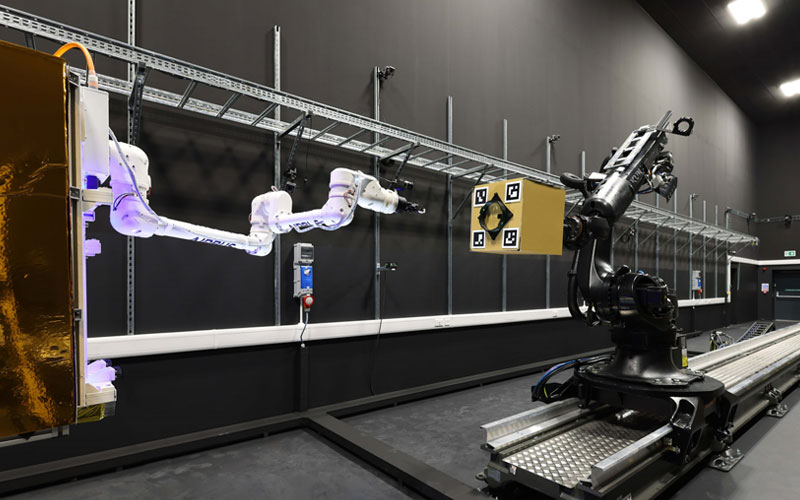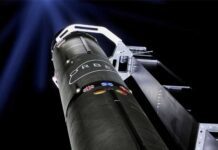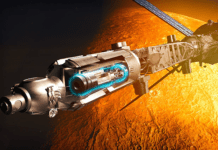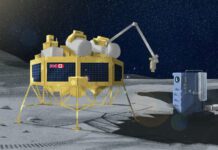
The UK Space Agency has announced that it has committed £3.5 million in funding to further the development of technology aimed at extending the life of satellites.
The Satellite Applications Catapult will receive £2 million of the total amount to upgrade its In-Orbit Servicing and Manufacturing (IOSM) facility.
The Satellite Applications Catapult was established in December 2012 as one of nine Catapult centres set up by Innovate UK to conduct research and development across a number of different industries. Innovate UK is part of UK Research and Innovation, which is a non-departmental public body, a designation assigned to organizations that have a role in national government but are not part of a governmental department. Not confusing at all.
Located at the Westcott Space Cluster in Aylesbury, the IOSM testing and simulation facility will offer UK companies the ability to verify, validate, and demonstrate a number of in-orbit operations, including servicing, inspection, repair, assembly, and manufacturing.
“IOSM is predicted to be worth £11 billion globally by 2031, and the UK has the expertise to capture at least 25% of this market,” said Satellite Applications Catapult CEO Lucy Edge. “To achieve that, it’s critical that the UK’s IOSM companies have access to infrastructure to test their technologies and operations under mission conditions.”
The remaining £1.5 million in funding will be used to conduct feasibility studies focused on refueling satellites in space. Contracts for these feasibility studies have already been awarded to Astroscale, ClearSpace, and Orbit Fab.
Astroscale will be adapting its COSMIC debris removal spacecraft to offer in-orbit refueling services. The company has partnered with TAS, Airbus Defence & Space, Orbit Fab, and GMV for the feasibility study.
The ClearSpace REFUEL.ME project will see the company take a similar path to Astroscale by adapting its own debris removal capability. The company has partnered with Orbit Fab, Satellites Applications Catapult and Know.space to continue developing the concept.
Finally, Orbit Fab, which is also involved in the other two feasibility studies, will utilize both its Rapidly Attachable Fuel Transfer Interface (RAFTI) and its Grappling and Resupply Active Solution for Propellants (GRASP) offerings to develop the RAFTEA mission. The company will develop the mission with partners MDA, ClearSpace, D-Orbit, and BryceTech.




